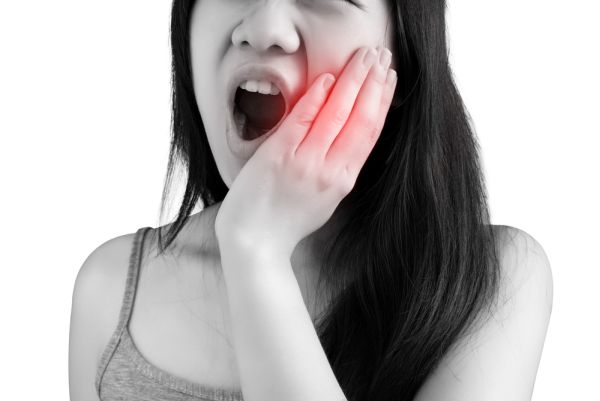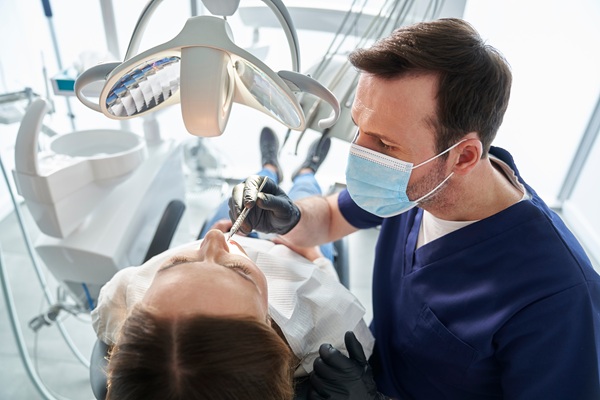Take Charge of Stress Management to Reduce Your Teeth Grinding Habit

Those who grind their teeth are often unaware of the fact. Teeth grinding, also known as bruxism, usually happens while asleep. It can also occur during the day when the sufferer is stressed or subconsciously grinding or clenching their teeth while concentrating.
What is bruxism?
Bruxism is the act of grinding, clenching or gnashing one’s teeth. Occasional bruxism is virtually harmless, but continued grinding can lead to serious issues like worn teeth, jaw issues and nerve damage.
Treating a tooth grinding habit early is crucial to preserving good oral health.
Symptoms of teeth grinding
Since this condition occurs mainly during sleep, many are unaware that they grind their teeth. Some people may not know until their significant other hears the loud grinding while the sufferer sleeps.
Your dentist will be able to examine your teeth to look for the following telltale signs of bruxism:
- Jaw tenderness
- Dull, constant headache throughout the day
- Excessive wear on teeth
- Fractured teeth
- Loose teeth
Bruxism can also cause TMJ (Temporomandibular Joint Dysfunction), a jaw disorder that causes pain and affects the movement of the jaw. If left untreated, teeth grinding can cause a myriad of serious oral health issues such as gum recession and tooth loss.
Causes of teeth grinding
Stress, anxiety and even a misaligned bite can all cause bruxism. Although there are many causes for this condition, the most common is stress.
Other causes include:
- Smoking
- Consumption of alcohol
- Fatigue
- High caffeine intake
- Sleep apnea
- Snoring
It may help to observe and record your jaw clenching and teeth grinding habits during the day. This way, when you go in to see your dentist you will have a detailed report of any apparent patterns or triggers. During the day, teeth grinding and clenching commonly happens when one is concentrating or during a stressful situation.
Manage your stress to kick the habit
There are many tactics to reduce stress during the day that can carry into minimizing teeth grinding at night.
Exercise
Getting at least 30 minutes of exercise each day may help to reduce your teeth grinding habit. The right amount of exercise is proven to decrease stress levels.
Diet
Try eating foods that are high in calcium, potassium and vitamin C to get your fair share of teeth-friendly vitamins and minerals. Your oral health starts with nutrition, so make sure to pay close attention to your diet. Avoid alcohol and caffeine, as these can trigger teeth grinding in some.
Meditation
Stress relief can come in many forms. Learning how to meditate when experiencing periods of high stress is a valuable tool to help stop your bruxism in its tracks.
Counseling
Talk to someone about problems that are bothering you. Work, relationships and even seasonal stressors like the holidays can contribute to a stressful lifestyle. Sometimes all it takes to stop grinding your teeth is talking about any issues concerning you.
The bottom line
Keep in mind that bruxism can also be caused by sleep disorders. If this is the case, you will need to treat the root condition to stop grinding your teeth.
Consciously relaxing your jaw throughout the day will help to kick the habit of clenching. When your jaw is relaxed, your top and bottom teeth should not be touching and your lips should be barely together or slightly apart.
For nocturnal bruxism, your dentist will likely recommend a mouthguard to minimize contact. Talk to your dentist today to find out how to manage your stress and reduce your teeth grinding habit.
Request an appointment here: https://www.oaktreefamilydental.com or call Oak Tree Dental at (703) 763-5239 for an appointment in our McLean office.
Check out what others are saying about our services on Yelp: Read our Yelp reviews.
Recent Posts
When many people lose a single tooth, they may be inclined to ignore it and be grateful for the remaining thirty-one — despite the difficulties such a loss can cause. The good news is that getting a partial denture for one missing tooth is a relatively straightforward and largely painless procedure. Although you may experience…
Professional dental cleanings are integral for keeping your mouth healthy. They remove plaque and tartar (hardened plaque) that regular brushing and flossing cannot, leaving your teeth and gums refreshed. Maintaining healthy habits that keep your smile bright and strong is essential to make the most of a dental cleaning. Caring for your teeth properly after…
When it comes to replacing teeth, some people feel it is unnecessary to get a partial denture for one missing tooth. However, even one missing tooth can cause severe damage to the rest of the mouth and even lead to behavioral issues such as embarrassment or loss of confidence if it is not replaced with…
If you have a gap in your teeth, you may want to consider a partial denture for one missing tooth. The gap may be affecting your appearance and lowering your self-confidence. Even if the missing tooth is in the back and is not very noticeable, it is important to replace it because there are long-term…


